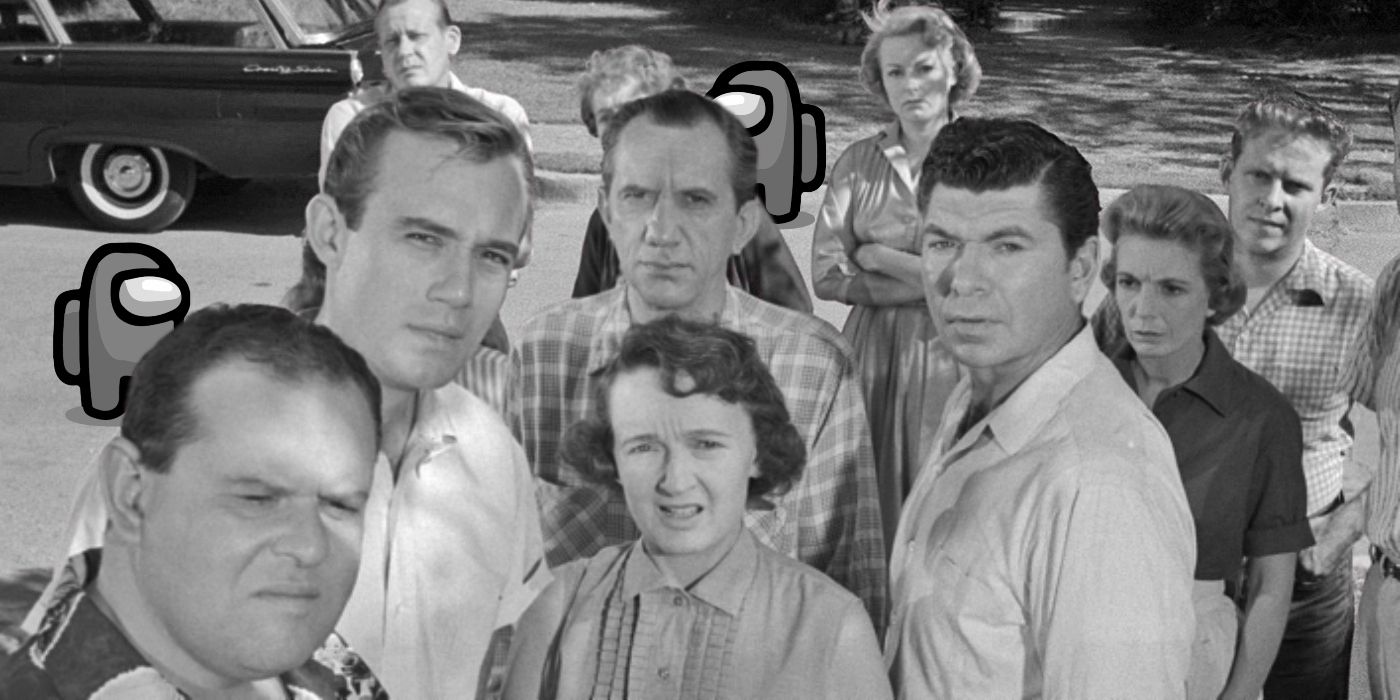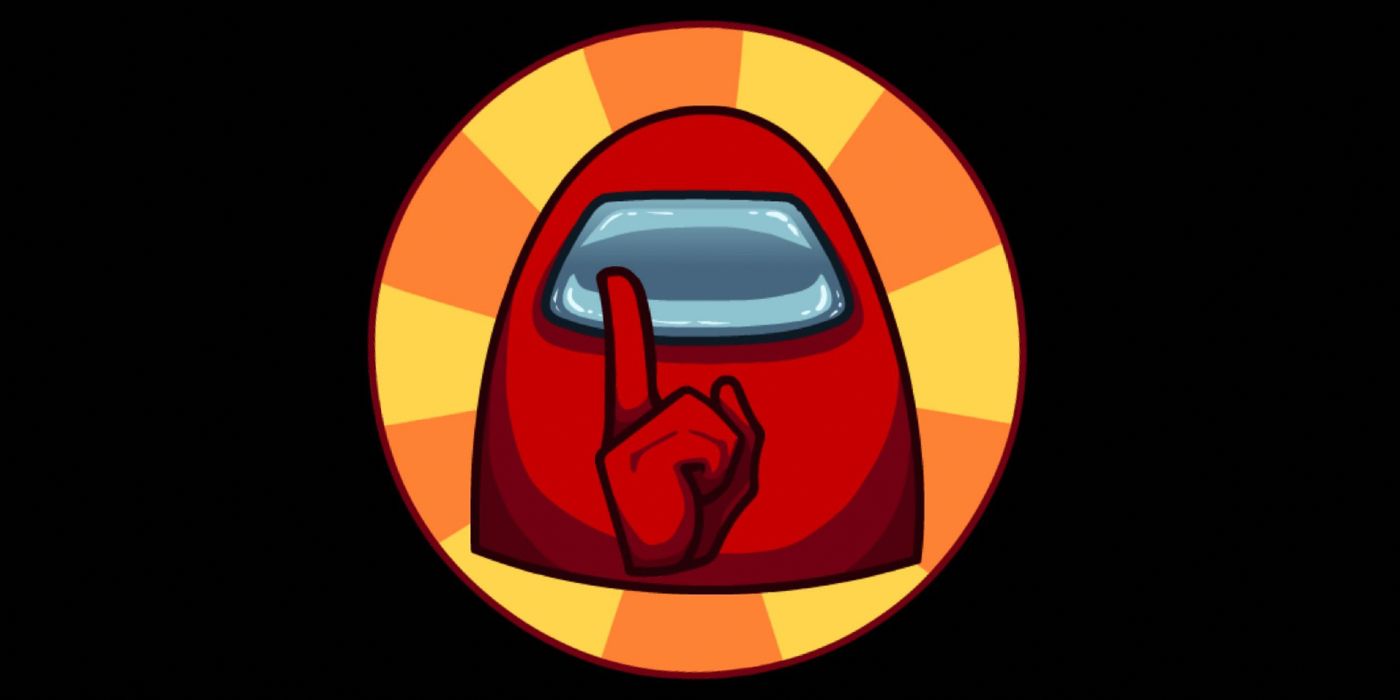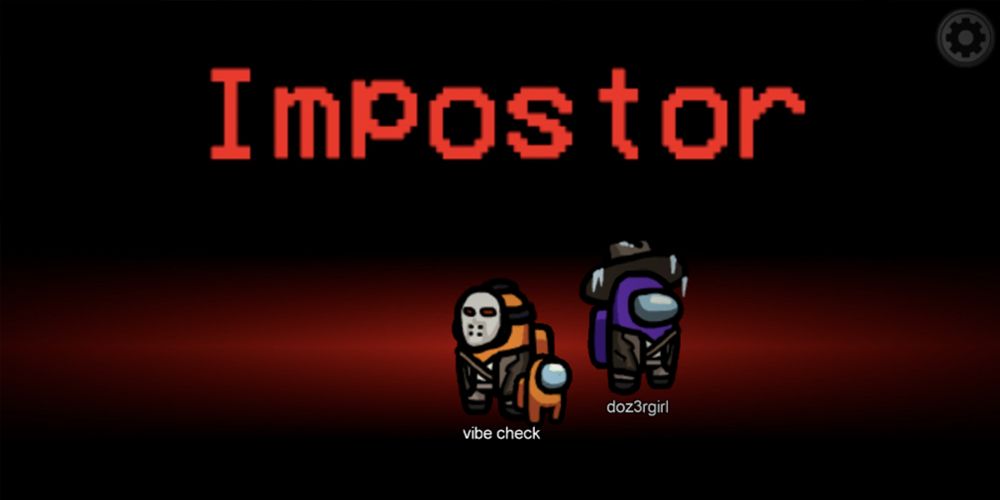
Few games have had as much of an impact in the last few months as Among Us. The social deduction game challenges a team of players to figure out which of them is an alien impostor. It neatly packages themes of trust and betrayal into a fun, mostly harmless party game.
Among Us has claimed the party game Mafia and the John Carpenter thriller The Thing as inspirations. But an episode of The Twilight Zone that predates both might be the best on-screen representation of the game itself. True, the idea of an "impostor among us" has existed in film and television since the beginning. But The Twilight Zone's unique take on it comes closest to the spirit of Among Us itself.
RELATED: How Horror Games Can Look To Among Us For Inspiration
Season one, episode twenty-two of The Twilight Zone, "The Monsters Are Due on Maple Street", first aired in 1960. It begins, as all episodes do, with Rod Serling's narration introducing us to the setting. Maple Street is part of an idyllic, traditionally American neighborhood. Children play in the streets while neighbors greet each other cheerfully. But at 6:43 PM on a Saturday afternoon, all of that is about to change.
The following contains major spoilers for "The Monsters Are Due on Maple Street."

The first sign of danger comes when the neighbors hear what they think is a meteor passing overhead. Immediately afterward, all of their electricity goes out. This happens in Among Us, too — sabotaging the lights limits the Crewmates' vision, making it harder to see the Impostor. Since their cars, phones, and radios don't work, the residents of Maple Street have no connection to the outside world. They're stuck in a single area, and the only thing they can do is speculate. Like in Among Us, however, things quickly go awry since nobody knows the truth.
The first mention of aliens comes when a boy named Tommy appears. He tells his neighbors that the "thing" that flew overhead was actually an alien ship. At first, nobody believes him, and neighbors Steve Brand and Charlie Farnsworth decide to walk into town for answers. But Tommy stops them by mentioning a sci-fi story he read. In the story, after aliens decided to attack an area, they sent down four "impostors" to prepare it for takeover. These impostors (who looked just like regular humans) were the only ones who could leave after the invasion had started.
In Among Us, the alien impostors can do things that the people they've disguised themselves as can't. These extra abilities can help the protagonists catch them. It's the same way in the episode. Suspicion is at first cast towards neighbor Les Goodman, after his car starts without him even touching it. Steve is the only one trying to figure out the truth, as the others suddenly support the alien narrative. In true Among Us fashion, they attack Les with little to no proof beyond a single detail.
Among Us is about trust, particularly when played by a group of friends. Without proof, any conclusion drawn comes from preconceived notions (such as "Red sus"). Players can convince themselves that a certain player is an impostor on bias and prejudice alone. Les has lived on Maple Street for years, but only now do his neighbors reveal their true feelings about him. They bring up things that would mean nothing if they didn't have "reason" to believe he was an impostor. This is where the element of confirmation bias comes into play. It's a theme that recurs several times throughout the episode. The fact that someone could kill them any second leads the "players" to make snap decisions and pursue phony leads. And since they don't want to deviate from the common belief and risk accusation, they foster a mob mentality.
Les tells his neighbors that what they're doing is what they should really be frightened of. Playing judge, jury, and executioner is dangerous, he warns. But the crowd (which is quickly turning into a real mob) won't listen to him at this point. As day becomes night on Maple Street, the neighbors keep watch over Les's house. But as their differences of opinion become heated arguments, they begin to turn on each other instead. The tension hits its peak when Charlie shoots a figure walking towards them in the dark, thinking it's an alien. But it's just Pete VanHorn, a neighbor who left hours ago to see if Floral Street's power was on. He was not the impostor.
In Among Us, if the group thinks someone is a killer, almost nothing can make them think otherwise. Now Charlie, once the main accuser, is on the receiving end of the witch-hunt. The group is growing restless in their hunt for the impostor, and he has to find a scapegoat. So, saying he knows who "doesn't belong among us", he points them at Tommy, the one who started all this. As Tommy desperately tries to get away, the lights go on in his house, and now the crowd is convinced. But then other lights go on, and the street devolves into screaming, fighting, and mad, senseless chaos. So who was the impostor all along?

A small distance away, two aliens hide and tamper with the street's electricity. All along, their 1000 IQ strategy has been simply staying out of sight. Just by making slight changes to the environment, they've forced the others to find an impostor amongst themselves. "They pick the most dangerous enemy they can find, and it's themselves. All we need to do is sit back and watch."
This ending fits better with the episode's actual message (about McCarthyism) than Among Us, but the connections are still there. Keeping a low profile is a popular strategy for Among Us impostors, and for good reason. By letting others draw attention to themselves, the impostor diverts suspicion away from themself. Stay in the shadows, and let everyone else vote each other out.
The reason these themes fit so well with Among Us is that they also exist in real-life relationships. The social dynamics of a group of Among Us players determine their game's outcome. And if the players are too suspicious of each other to work together, nothing can be deduced. Of course, someone could always be lucky and catch another player venting. But who's to say the others will believe them?
Rod Serling says it best, in the episode's closing narration: "There are weapons that are simply thoughts, attitudes, prejudices." That statement still holds true today, in real life, in Among Us — and, of course, in the Twilight Zone.

